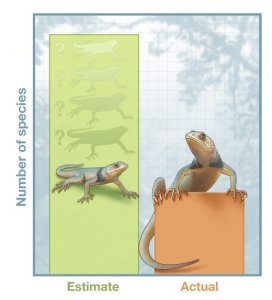
The resolution in genomic data makes it possible to not only detect divergent lineages, but also local population structure within them. Yet, these conflated boundaries have received little attention from those developing genetic-based species delimitation methods, potentially leading to mass over-splitting as genomic data become more widely employed. These challenges have profound implications for not only understanding the generation and dynamics of biodiversity, but also for conserving this diversity.
In this workshop, we will cover the foundations upon which genetic-based inference of species boundaries are built. In particular, we will review the history that lead to a reliance on the multispecies coalescent (MSC) as the primary model for species delimitation. Despite the appeal of genome-based species discovery, we will explain how misidentification of population structure as putative species is an emerging key issue for applications of the MSC for species delimitation, as well as the implications of divergence of gene flow for identifying species boundaries.
Read more at the website linked on this page
In this workshop, we will cover the foundations upon which genetic-based inference of species boundaries are built. In particular, we will review the history that lead to a reliance on the multispecies coalescent (MSC) as the primary model for species delimitation. Despite the appeal of genome-based species discovery, we will explain how misidentification of population structure as putative species is an emerging key issue for applications of the MSC for species delimitation, as well as the implications of divergence of gene flow for identifying species boundaries.
Read more at the website linked on this page